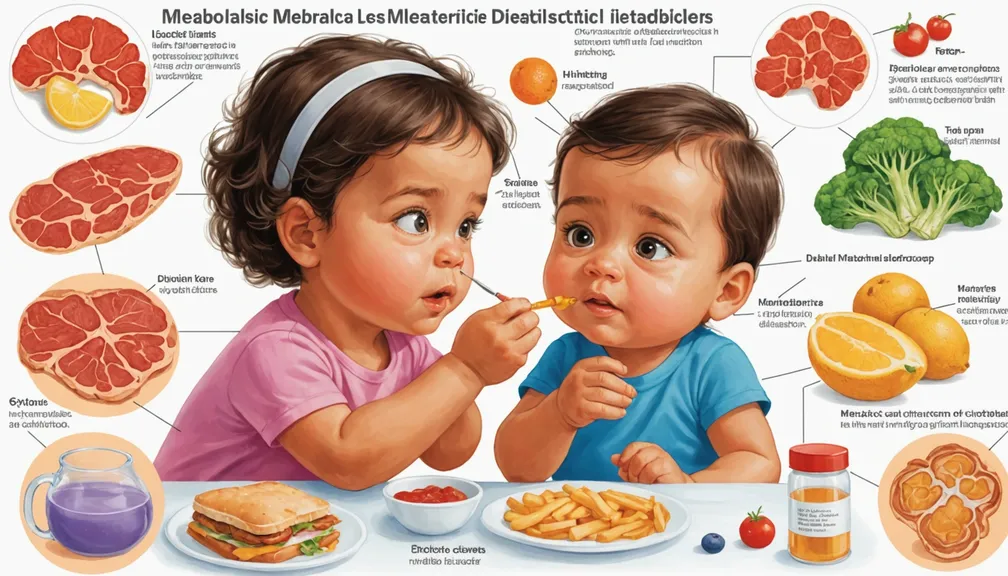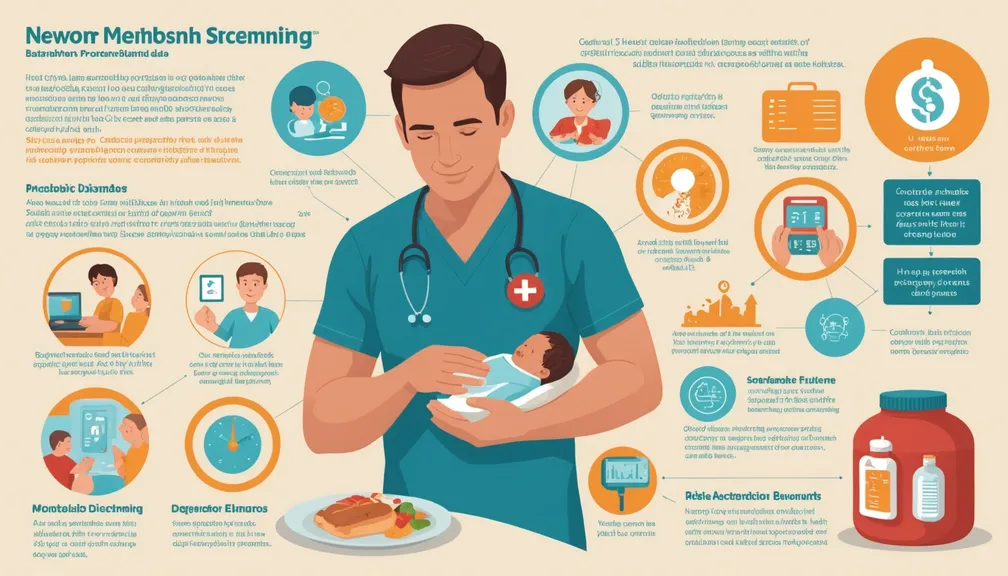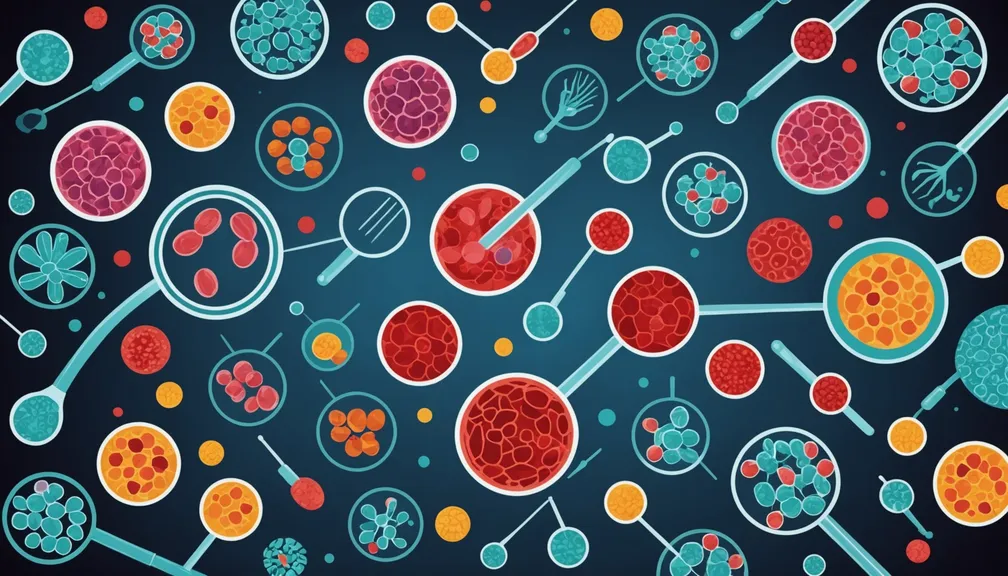Medical Treatments: Enzyme Replacement and Gene Therapies
Understanding the medical treatments available for metabolic rare disorders can empower you and your loved ones to manage the condition effectively. This lesson covers Enzyme Replacement Therapy (ERT) and Gene Therapies, two advanced treatment options that can significantly impact health and quality of life.
Enzyme Replacement Therapy (ERT)
What is Enzyme Replacement Therapy?
Enzyme Replacement Therapy is a medical treatment designed to supplement the deficient or malfunctioning enzymes in individuals with metabolic rare disorders. Enzymes are proteins that help speed up chemical reactions in the body, including those that convert food into energy.
How ERT Helps
- Restores Enzyme Levels: By providing the missing enzyme, ERT helps normalize the body's metabolic processes.
- Reduces Symptoms: Consistent enzyme levels can alleviate symptoms such as fatigue, muscle weakness, and organ dysfunction.
- Prevents Complications: Early and regular treatment can prevent the progression of the disorder and related health issues.
Administration and Frequency
- Intravenous Infusion: ERT is typically administered through an IV infusion, usually in a clinical setting.
- Regular Schedule: Treatments often occur weekly or biweekly, depending on the specific disorder and patient needs.
Benefits and Limitations
- Benefits:
- Improved Quality of Life: Many patients experience significant improvement in daily functioning.
- Slows Disease Progression: Regular treatment can slow or halt the advancement of the disorder.
- Limitations:
- Not a Cure: ERT manages symptoms but does not eliminate the underlying genetic cause.
- Cost and Accessibility: Treatments can be expensive and may require specialized healthcare facilities.
Gene Therapies
What is Gene Therapy?
Gene Therapy is an innovative treatment approach that involves modifying a patient's genetic material to address the root cause of a metabolic rare disorder. This can involve replacing faulty genes, inactivating malfunctioning ones, or introducing new genes to help the body function properly.
How Gene Therapy Helps
- Corrects Genetic Defects: By targeting the faulty genes, gene therapy aims to restore normal enzyme production.
- Long-Term Solutions: Unlike ERT, which requires ongoing treatments, gene therapy has the potential to provide lasting benefits after a single or limited number of treatments.
- Reduces Dependence on Enzyme Supplements: Effective gene therapy can decrease or eliminate the need for regular ERT.
Administration and Frequency
- Viral Vectors: Gene therapy often uses modified viruses to deliver the correct gene to the patient's cells.
- Single or Limited Doses: Depending on the treatment, patients may receive one or a few administrations.
Benefits and Limitations
- Benefits:
- Potential Cure: Gene therapy offers the possibility of a long-term resolution of the disorder.
- Less Frequent Treatments: Reduces the need for regular medical interventions.
- Limitations:
- Experimental Stage: Many gene therapies are still being studied and may not be widely available.
- Risks: Potential side effects include immune reactions and unintended genetic changes.
Comparing Enzyme Replacement and Gene Therapies
Differences
- Mechanism:
- ERT: Supplements missing enzymes externally.
- Gene Therapy: Addresses the genetic root of the disorder by modifying DNA.
- Duration:
- ERT: Requires ongoing treatment.
- Gene Therapy: May offer long-term or permanent solutions with limited treatments.
- Availability:
- ERT: More established and widely available for certain disorders.
- Gene Therapy: Still emerging with limited approved treatments.
When Each is Appropriate
- ERT is often the first-line treatment for conditions where enzyme deficiencies are well-understood and manageable with regular supplementation.
- Gene Therapy may be considered for patients seeking more permanent solutions or for disorders where ERT is ineffective or unavailable.
Possible Side Effects and Risks
Common Side Effects
- ERT:
- Infusion Reactions: Fever, chills, or allergic reactions during or after the infusion.
- Localized Symptoms: Swelling or redness at the infusion site.
- Gene Therapy:
- Immune Responses: Body's immune system may react to the viral vectors used.
- Genetic Changes: Unintended modifications to DNA that could have unforeseen effects.
Managing Risks
- Close Monitoring: Regular check-ups with healthcare providers to monitor for adverse reactions.
- Pre-Treatment Assessments: Evaluating overall health to minimize risks before starting therapy.
- Emergency Plans: Having protocols in place to address severe reactions promptly.
Accessing Treatments
Insurance and Costs
- Coverage: Many insurance plans cover ERT, but coverage for gene therapy may vary.
- Financial Assistance: Programs and grants may be available to help with treatment costs.
- Discussion with Providers: Speak with healthcare providers about financial options and support.
Availability
- Specialized Centers: Treatments like ERT and gene therapy are available at specialized medical centers and hospitals.
- Geographical Factors: Availability may depend on your location and access to advanced medical facilities.
Support from Healthcare Professionals
Types of Doctors
- Metabolic Specialists: Doctors who specialize in metabolic rare disorders and oversee treatment plans.
- Geneticists: Experts in genetics who can provide insights into the hereditary aspects of the disorder and gene therapy options.
- Pediatricians or Internists: Depending on the patient's age and specific needs.
Other Health Professionals
- Nurses: Administer treatments and provide day-to-day care and support.
- Genetic Counselors: Offer guidance on genetic aspects, family planning, and understanding treatment implications.
- Physical and Occupational Therapists: Help maintain mobility and daily functioning affected by the disorder.
- Mental Health Professionals: Provide emotional support and strategies to cope with the challenges of living with a rare disorder.
Remember: Always consult with your healthcare team to determine the most appropriate treatment options for your specific condition.






